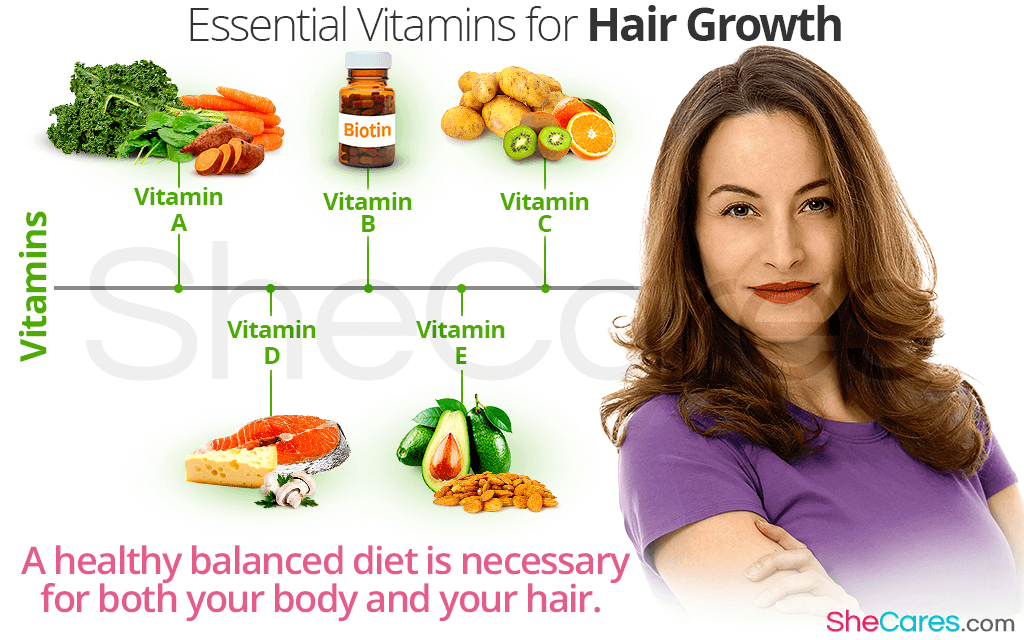Table Of Content

Valerie Agyeman (she/her) is a women's health dietitian and the host of the Flourish Heights podcast, where she produces science-driven content covering overlooked nutrition, wellness and women’s health topics. She has over 10 years of nutrition communications, corporate wellness and clinical nutrition experience. Valerie is a trusted expert and regularly appears on networks including ABC’s Good Morning Washington, and she is a contributing expert to publications like Women’s Health, The Thirty and Shape.
Conditions
Milk and dairy products may contain high levels of fat which can increase the testosterone levels. Known to be a very rich source of iron, prunes are good to have if you suffer from stiff hay-like dry hair, thinning, and hair discoloration (15) (16). Like citrus, papaya is filled with hair-perfecting vitamin C, which protects collagen. St. Surin-Lord also calls out the fact that papaya is high in fiber and carotenoids, which aid in scalp health. However, overconsumption of red meat, especially processed red meat, has been linked with an increased risk of cardiovascular disease, colorectal cancer, and type 2 diabetes (35).
Warning signs of hair loss
By Julie MarksMarks is a Florida-based freelance health writer with a bachelor's degree in broadcast journalism and creative writing. One yellow pepper provides up to 456% of the daily vitamin C needs of females and 380% for males (23, 24). For example, an ounce (28 grams) of almonds provides 48% of your daily vitamin E needs (19). A cup (30 grams) of spinach provides up to 20% of your daily vitamin A needs (7).
Meat for protein and iron
Best hair growth supplements for thickness 2024 - Good Housekeeping uk
Best hair growth supplements for thickness 2024.
Posted: Tue, 20 Feb 2024 08:00:00 GMT [source]
Eggs are one of the most affordable sources of protein, and they also happen to be great for your hair. One egg contains 6 grams of protein, plus biotin, both known for their hair growth-boosting potential. "I love to add eggs to a panini sandwich and to make avocado deviled eggs," says Gorin. “Most adults can get all the omega-3 fatty acids they need by eating just two servings of salmon weekly,” says Yawitz. You can have your salmon grilled, broiled, raw, or mixed in with scrambled eggs—a great source of biotin. At any given time, the average scalp has 90 percent of the hair follicles in the anagen phase, about 1 percent in the catagen phase, and about 9 percent in the telogen phase.

Natural remedies to promote eyebrow hair growth
Some studies suggest that telogen effluvium can also be connected to low levels of iron, so include iron-rich foods like leafy vegetables, lentils and liver where you can. If you like the idea of adding supplements to your routine, there are some which are specifically formulated to contain ingredients that increase hair thickness and health. Eggs are a good source of biotin or vitamin B7, which is an incredible supplement for boosting hair growth. A study shows that chicken eggs can help stimulate hair growth and reverse the effects of hair loss (9). Therefore, deficiency of essential nutrients present in eggs can lead to innumerable hair loss. Other sources of these rich elements are lean meat, poultry, and oysters.
The 14 Best Foods for Hair Growth, According to Dietitians
It’s also a powerful antioxidant, which may protect hair strands against oxidative stress. Flaxseeds provide a type of omega-3 fatty acid that is not used by the body as efficiently as the omega-3s found in fatty fish. Fatty fish like salmon, herring, and mackerel have nutrients that may promote hair growth. But, supplementing with too much vitamin A can lead to hair loss (1). Hair growth is a natural process influenced by a complex interplay of hormones, genetics, and even age. Fluctuations in hormones, particularly androgens like testosterone, can increase hair growth in women.
Top 5 foods for hair growth
These fish have nutrients, such as omega-3 fatty acids, protein, selenium, vitamin D3, and B vitamins, which may help promote strong and healthy hair growth. Keeping your scalp clean promotes healthier hair growth by creating an optimal environment for hair follicles. Additionally, a clean scalp helps reduce the risk of scalp infections, inflammation, and dandruff, which can negatively impact hair health and growth.
What factors affect hair growth?
When applied to the scalp, minoxidil is believed to widen blood vessels, promoting increased blood flow to hair follicles. This improved circulation is thought to stimulate hair growth and is often used to address conditions such as androgenetic alopecia, commonly known as pattern baldness. Applying an oil-based product directly to the scalp has been shown to improve the scalp's condition. This, in turn, can promote healthy hair growth and cut back on hair loss caused by stress. For example, dandruff shampoos with zinc pyrithione, salicylic acid, sulfur, selenium sulfide, ketoconazole, and coal tar can control dry, flaky skin on the scalp.
Eggs
All nuts are a fantastic source of protein and other vitamins, but Gorin is partial to pistachios. "These are one of my favorite nuts because they're a complete plant protein," she says. "Protein is very important for the hair, as the amino acids it contains are a building block of the keratin in hair. I love to add pistachios to yogurt and to include them in vegan protein balls." Beef liver is also a great food for hair growth, as it has some of the highest concentrations of vitamin A, vitamin C, and fatty acids, says Gorin. If you're vegan, you can still get in on the hair growth benefits of yogurt by opting for a plant-based version such as almond or cashew. Just make sure you choose a high-protein option and opt for one that contains plenty of hair growth nutrients such as protein and iron.
High in vitamin E and a certain type of fatty acid, castor oil may help promote scalp circulation—contributing to healthier, stronger, and shinier hair. Certain essential oils have been shown to help promote hair and scalp health. Shampoos and topical products targeting dandruff may also help promote hair growth. The average scalp contains around 100,000 hair follicles—and it's normal to lose about 100 hairs every day.
Hairstyles like tight ponytails or braids can affect your hair as well. However, with the proper products and techniques, this concern can be addressed. Revamping your wash day routine with targeted shampoos, conditioners, and treatments can help restore strength and shine to your hair. Implementing hair care practices like gently drying with microfiber towels and applying heat protectants before using hot tools can also make a world of difference. By implementing these changes, you'll notice progressively stronger, healthier hair over time. Omega-3 fatty acids are critical for cell growth and function and have been correlated with reduced hair loss in some studies.
"Use a pretreatment or oil on the scalp before shampooing and massage the product using a scalp massager to stimulate blood circulation, promoting hair growth and healthy hair," she says. A 3.5-ounce serving of smoked oysters will add about 7 milligrams (mg) of iron and a whopping 63 mg of zinc to your diet. From eggs to bell peppers, these picks are rich in essential vitamins and minerals to support hair growth. Gaunitz is also a big fan of sardines for their fatty acids and protein, making them a great food for hair growth. While not the most popular fish choice, getting creative in the kitchen could give you a new perspective on this little fish.
And, thanks to their high concentration of beta-carotene, they're also a particularly great food for healthy hair. That's because the body converts beta carotene into vitamin A, which we've already noted as an important ingredient for healthy hair growth. Nuts and seeds supply the body with omega-3 fatty acids, vitamin E, and zinc, says Dr. Camp. Omega-3 fatty acids and vitamin E both possess anti-inflammatory properties that protect hair follicles from oxidative stress, he notes. “Zinc plays a role in protein synthesis in our body, including keratin—one of the main structural proteins that form hair,” explains Gans.

No comments:
Post a Comment